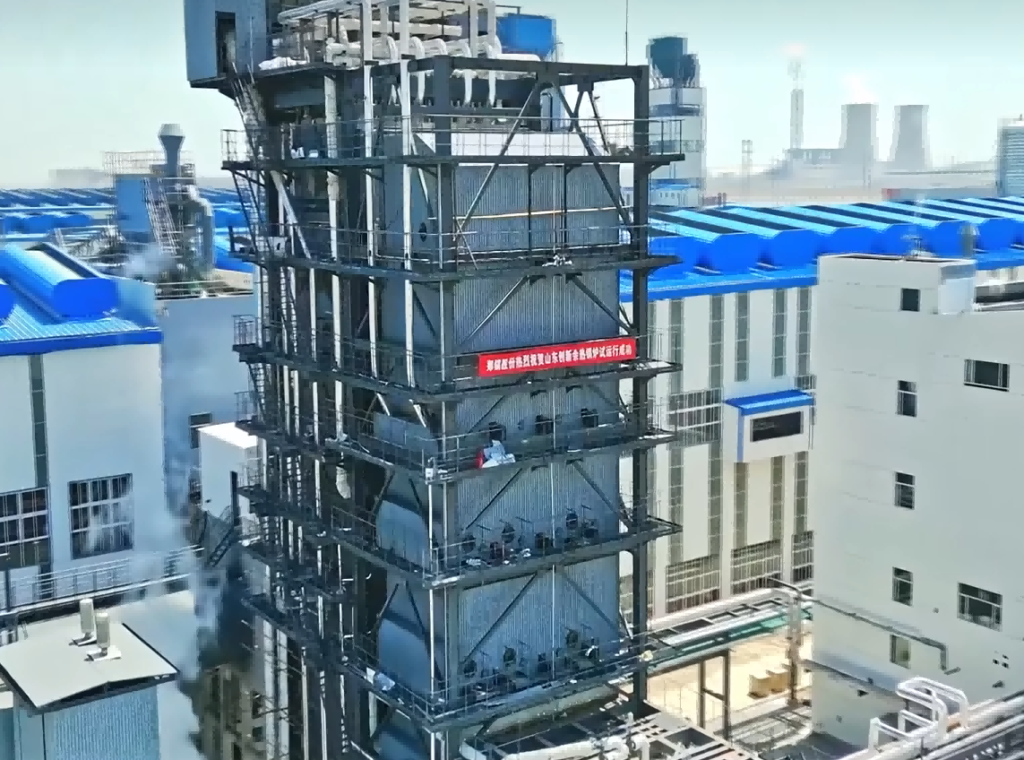
What is the function of circulating fluidized bed boiler air preheater?
- Enhancing Combustion: By raising the temperature of the combustion air supplied to the boiler, the drying time of the fuel is reduced, and the release of volatile components is facilitated. This results in quicker ignition of the fuel, faster combustion, improved combustion stability, and increased efficiency.
- Improving Heat Transfer: The use of preheated air and enhanced combustion increases the flue gas temperature in the combustion chamber, thereby improving radiative heat transfer within the furnace.
- Boosting Boiler Efficiency: Adding an air preheater effectively lowers the flue gas temperature, reduces flue gas losses, and enhances the overall efficiency of the boiler, contributing to better economic performance.
What types of air preheaters are used in circulating fluidized bed boilers?
There are currently three types of air preheaters used in circulating fluidized bed boilers. The majority of these boilers use tubular air preheaters, which can be classified into vertical and horizontal types. Some circulating fluidized bed boilers utilize heat pipe air preheaters, which have the advantage of a lower air leakage coefficient. The third type is the rotary air preheater, which is advantageous due to its relatively compact size, making it suitable for large-capacity circulating fluidized bed boilers, such as the imported Baima 300MW unit. Given the high primary air pressure in circulating fluidized bed boilers, rotary air preheaters designed for these systems feature special compartmentalization and sealing techniques to minimize air leakage.
How are corrosion and fouling formed in air preheaters?
Air preheaters are situated in the boiler’s lowest temperature zone, particularly at the cold end of the final air preheater, where both air and flue gas temperatures are at their lowest. This results in the lowest surface wall temperature on the heating elements, making them highly susceptible to corrosion and fouling. When burning fuels with high sulfur content, SO2 and SO3 gases are produced, which react with water vapor in the flue gas to form sulfurous or sulfuric acid vapor. If the flue gas temperature falls below the acid vapor dew point, the sulfuric acid vapor condenses on the heating surfaces, leading to severe corrosion of the metal. Additionally, the acidic condensate binds with the dust in the flue gas, causing increasing fouling and potential blockage.
In circulating fluidized bed boilers, fouling on the heating surfaces in the rear flue duct reduces the surface’s heat transfer coefficient, leading to decreased heat absorption, higher flue gas temperatures, and reduced boiler efficiency. Severe fouling increases flue gas resistance, placing a greater load on the induced draft fan and raising auxiliary power consumption. Prolonged corrosion and fouling can damage and cause leaks in the heating surfaces. Although minor leaks may allow continued operation, they increase the load on the induced draft fan, restrict boiler output, and significantly impact the boiler’s operational efficiency.
What is low-temperature corrosion in boilers?
Low-temperature corrosion in boilers occurs due to the presence of sulfur in coal, which, during combustion, produces SO2. Some of this SO2 is further oxidized to form SO3. Additionally, the boiler flue gas contains acidic gases such as NOx. When the flue gas temperature drops to a lower level, these acidic gases react with the water vapor present in the flue gas, forming various acids. These acids then adhere to the metal surfaces of the rear heating elements, leading to corrosion. Alternatively, when the temperature of the rear heat exchange tube walls is low, the acidic gases in the flue gas can react with condensed water on the tube walls, forming dilute acids that corrode the metal surfaces. This overall process is referred to as low-temperature corrosion.
Share The Post
